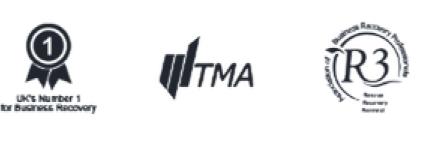What happens to directors of dissolved companies?
If your company can pay all its debts (it’s solvent) and does not have substantial retained profits, a process called Strike Off, also known as Company Dissolution, is usually the most cost-effective way to close it.
This is a process you can initiate and manage yourself. You simply apply to Companies House to strike off your business. If there are no objections to your application from creditors or other stakeholders, your business is removed from the register and will cease to exist.
What are the risks of Strike Off for company directors?
Strike Off can be a quick and relatively straightforward way to close your limited company. However, there are also risks if you don’t deal with the company’s assets, debts or affairs properly. They include:
Facing a legal challenge
Strike Off is only suitable for solvent companies. If you try to strike off a business with debts, your creditors can object to the application and the process will be suspended. They can take action to recover the outstanding debt and even issue a Winding Up Petition to force you into Compulsory Liquidation.
Even if you successfully strike off a company with debts, your creditors can apply to restore the company to the official register to enforce payment. Your conduct as a director may also be investigated, potentially leading to financial penalties and disqualification from serving as a director.
Losing assets to the Crown
Any assets that still belong to the company when you strike it off become ‘bona vacantia‘ and ownership passes to the Crown. That can include business funds, property and equipment. To avoid this risk, you must transfer or sell all the business’s assets before applying for Strike Off.
Paying more tax than necessary
If your business has net assets of £25,000 or more, Strike Off is unlikely to be the most tax-efficient closure method as you pay Income Tax on any distributions over that amount. Members’ Voluntary Liquidation is more tax efficient for businesses with a high value of net assets as you pay Capital Gains Tax on all shareholder distributions, and you may also be eligible for Business Asset Disposal Relief.
What happens to directors of liquidated companies?
The right liquidation procedure for your business depends on its financial position. If your company is solvent and has valuable assets to distribute to its shareholders, Members’ Voluntary Liquidation (MVL) is usually the most tax-efficient way to close it. On the other hand, if the company has debts it cannot pay (it’s insolvent), you can close it voluntarily using a Creditors’ Voluntary Liquidation (CVL).
For both an MVL and CVL, you must appoint a licensed Insolvency Practitioner to act as the liquidator. They will down the business’s affairs and deal with its assets and debts before closing it. When you appoint a liquidator, your power as a director will cease and you will no longer have control of the company or be able to act on its behalf.
However, you will still have a role in the liquidation. You must cooperate with the liquidator, give them information about the company’s affairs and hand over books and records. You must also attend interviews with the liquidator if requested and assist them with the sale of assets.
What are the risks of liquidation for company directors?
The Members’ Voluntary Liquidation procedure is usually quite straightforward. However, if your business is insolvent, Creditors’ Voluntary Liquidations tend to be more complex. As part of the procedure, the liquidator will investigate your conduct, which can lead to penalties. There are also some other risks you should be aware of.
Personal liability for company debts
Your personal funds and the finances of the business are legally separate. Ordinarily, that means you will not be liable for the company’s debts. However, if you have signed a personal guarantee to secure company debt or have an overdrawn director’s loan account, you will usually be liable for these debts on liquidation. If you cannot pay what you owe, there’s also a risk of bankruptcy.
Continuing to trade when the company is insolvent
One of the biggest risks for directors is continuing to trade when you knew or should have known the company was insolvent. When your business becomes insolvent, you must prioritise the interests of your creditors. That usually means ceasing trading immediately so you don’t incur further debts. If you do, you could be made personally liable for those debts or be disqualified from acting as a director.
You’re guilty of misconduct
As part of an insolvent liquidation, the Insolvency Practitioner will investigate your conduct in the period leading up to and during liquidation. You could face serious financial and legal penalties if they find evidence of improper conduct. Examples of director misconduct include:
- Taking a high salary when the company was struggling
- Paying dividends when there weren’t sufficient profits
- Making payments to connected creditors but not others
- Selling company assets for less than their true value
- Engaging in transactions to defraud your creditors or customers
Can I become a director of another company after my business closes?
Yes, regardless of whether you dissolve your business or enter a formal liquidation procedure, you can start a new company or continue trading an existing business. The only exception is if a liquidation investigation reveals misconduct and you receive a director ban.
It’s worth noting that if you liquidate your company, you cannot call a new business by the same or a similar name for five years. If you dissolve your business, there are no restrictions on the use of the closed company’s name.
Can I claim director redundancy pay?
You cannot claim director redundancy pay if you strike off your business or close it via solvent liquidation. However, you may be eligible for redundancy and other statutory entitlements if you close an insolvent company via a Creditors’ Voluntary Liquidation. To be eligible, you must have been paid via PAYE, worked for the company for at least two years and worked at least 16 hours a week.
Can I resign as a director during the liquidation procedure?
Although there’s nothing to prevent you from resigning during an insolvent liquidation, it will make little difference to your position. The liquidator will still investigate your conduct and pursue you if you are liable for any debts or have personally guaranteed company borrowing.
Stress-free company closure advice
If you want to close your limited company but are unsure about the most appropriate closure method or the potential implications, please get in touch for help. We offer a free consultation to discuss your circumstances and guide you on your options. You can also arrange a meeting at our network of offices throughout the UK.
Need to speak to someone?
With multiple offices across the UK and a vastly experienced team of business closure experts, you are never far away from the advice you need. Our Licensed insolvency practitioners provide free consultations to all directors and shareholders, and can quickly ascertain which closure method is best for your business.
We are licensed by recognised professional bodies and have helped thousands of directors over many years. Contact us today for your free company closure consultation.
Related Posts
25,000+ Company Directors Supported – Partner Led Service
At Company Closure we have a nationwide team of licensed insolvency practitioners and company closure experts here to help you understand your options. Whether your company is solvent or insolvent, there is a closure method out there to suit you.
Call our team of licensed insolvency practitioners today:




